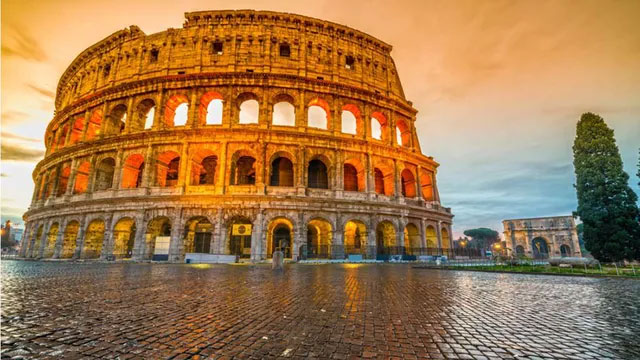Ancient Romans were the agents of climate change in Europe 2,000 years ago
An international team of scientists has used existing research on the issue of land use in ancient Rome to estimate the level of air pollution emitted. Then, with a global climate activated model, more specific quantification of human impacts on the local environment.
The researchers found that while deforestation and different land use changes have the effect of warming the Earth's temperature by 0.15 degrees Celsius, this was compensated by the cooling effect being pushed. pushed by the emission of emissions from burning agricultural products . As a result, the overall reduction temperature is 0.17 degrees Celsius, 0.23 degrees Celsius or 0.46 degrees Celsius (depending on the low, medium or high emission scenario, respectively).

The Romans had negative impacts on the global climate from thousands of years ago.
However, this surprisingly cool cooling effect is not common. The results from the model show that regions in Central and Eastern Europe have seen extreme coolness, while parts of North Africa and the Middle East will instead experience warming.
While scientists are studying the influence of the Roman Empire on European climate over the past two decades, this is the first study to consider the effect against air pollution, Joy Singarayer. , from the University of Reading in England. .
In contrast to today's climate change, this cooling seems not to be important enough to have much impact on Roman daily life. In particular, with the Roman Warm Period - a period of natural warming that took place between 250 BC and 400 AD.
Although it is difficult to accurately assess weather events in the past, however, it will be able to indicate human impacts on land and the atmosphere also affect the scale climate. continent in ancient times.
- Solar energy destabilizes European climate
- Central Europe with the risk of drought because of climate change
- Funny death of ancient Romans
- Is Europe freezing due to climate change?
- Climate change threatens many species in Europe
- The secret of strong teeth of ancient Romans
- People change the climate thousands of years ago?
- How to help Romans have beautiful white teeth without toothpaste
- An ancient empire may have collapsed due to climate change
- Contact the phenomenon of melting glaciers in Peru with Little Ice Age in Europe
- Ancient Egypt collapsed because of climate change
- The diet of 'sea breeze' of ancient Romans
 Is the magnetic North Pole shift dangerous to humanity?
Is the magnetic North Pole shift dangerous to humanity? Washington legalizes the recycling of human bodies into fertilizer
Washington legalizes the recycling of human bodies into fertilizer Lightning stone - the mysterious guest
Lightning stone - the mysterious guest Stunned by the mysterious sunset, strange appearance
Stunned by the mysterious sunset, strange appearance